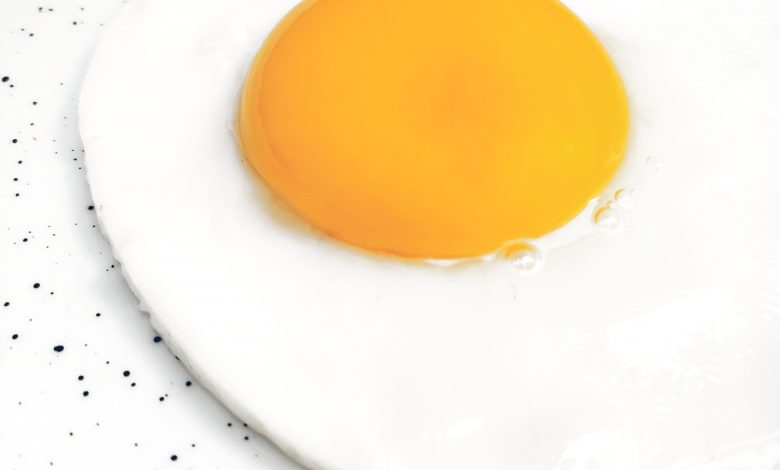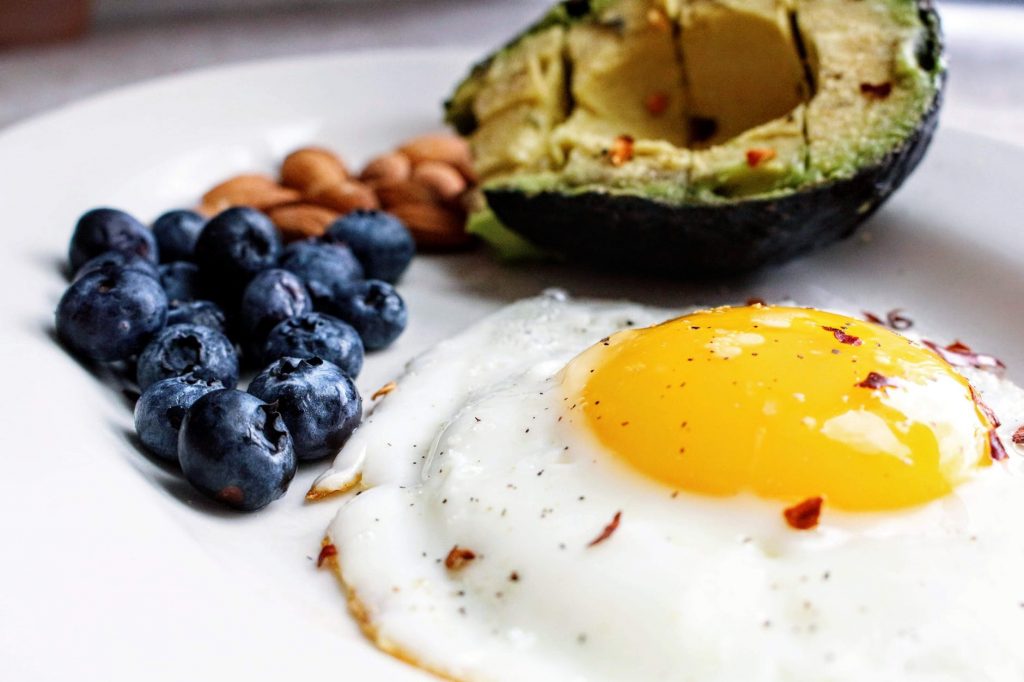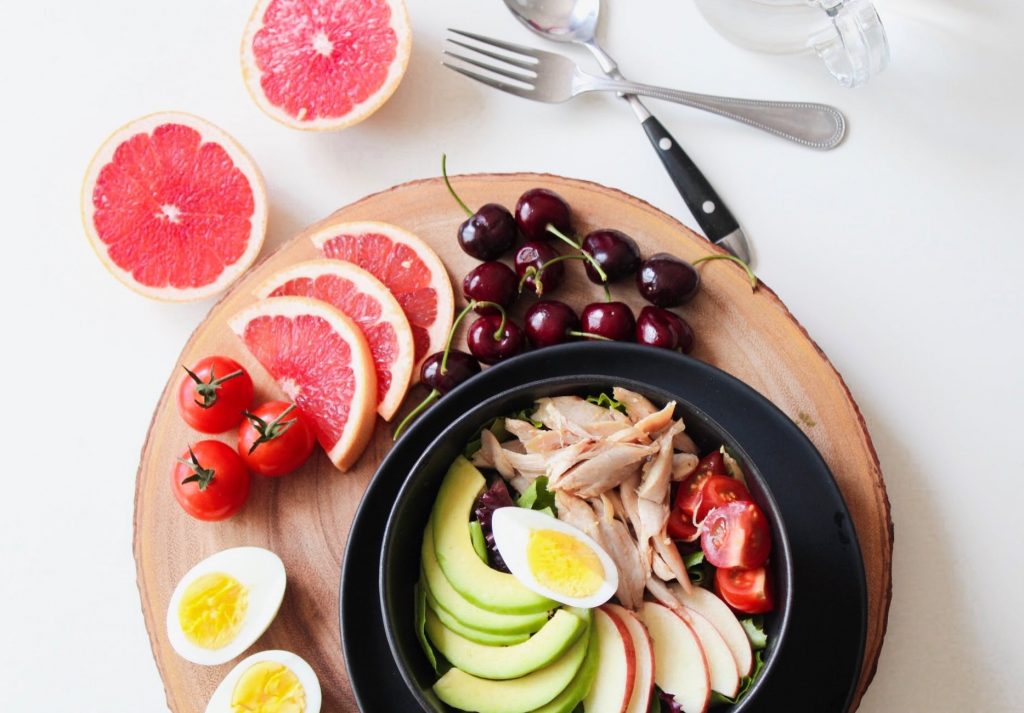
Busting the Myth About Egg Yolks
Eggs are one of the most simple food items to cook, even if you happen to be a novice in the kitchen. They are also one of the quickest things you can make when you are really hungry but don’t have enough time or patience to prepare an elaborate meal.
Even leaving an egg to boil while you change out of your work clothes will ensure you have a healthy, satiating snack ready in minutes without any need for you to stay in the kitchen to supervise the cooking. It is one of the most affordable edibles in your kitchen too. With so much going for them, eggs are deservedly a popular consumable across the US and, in fact, across the world.
However, not all eggs get such glowing accolades by the health-conscious folk. The yolk of the egg has received such a bad rap in the past that, even today, countless individuals harbor the impression that the healthy part of the egg is just the white portion and not the yolk.
The golden yellow yolk is removed carefully and discarded in many households simply because of the myth that it’s unhealthy. However, when it comes to actuality, the yolk is packed full of nutrition as well and has much to add to your daily dose of nutrition.
In effect, if you are in the habit of throwing out the yellow and using only the whites of your eggs, you are definitely missing out on the full nutritive value that the egg has to offer.

Too Much Cholesterol?
The major factor that led to many Americans avoiding egg yolk in its entirety can be traced back to the dietary guidelines that were formulated in the 1970s. It was at this time that the American Heart Association recommended the restriction of dietary cholesterol to 300 mg per day at a maximum.
One large egg has about 211 mg of cholesterol, so restricting egg consumption to just three per week seemed to be the best idea to ensure that one’s cholesterol intake was kept under control. The yolk has the bulk of the cholesterol content, at around 185 mg of it. There might be cholesterol in other eatables as well that would contribute towards the daily recommended limits.
Eggs were deemed to be an indispensable part of regular diet for their massive protein content, but thanks to the AHA’s recommendation on cholesterol limits, people were wary about ingesting too much yolk.
It was nonetheless a common notion that the white of the egg and not the yolk had all the goodness of protein. This led to the fitness freak discarding the ‘high cholesterol nutrient-less’ yolk and using just the protein-filled whites so that they could get the necessary nutrients, but without loading themselves up with excessive levels of cholesterol unnecessarily. The truth, however, is quite different!
Going back to dietary guidelines, tellingly enough, the latest of these recommendations by the American Heart Association clearly states that one egg per day is a healthy diet choice, and that’s one whole egg – white plus yolk.
The upper limit or restriction on daily dietary cholesterol ingestion is not mentioned in the guidelines at all. With their revised recommendations, it is clear that the AHA does not consider egg a high-risk food item when it comes to unnecessary cholesterol in the body.
Another point to note is that a zero-cholesterol diet is not in your favor at all. As opposed to the prevalent belief, our body needs adequate cholesterol to:
- Make vitamin D
- Produce crucial hormones (estrogen/ testosterone)
- Build cells
Cholesterol is so essential for the functioning of the body that our systems produce some themselves. However, as is evident, we also get cholesterol from our food.
LDL cholesterol is the bad kind and usually tends to build up in blood vessels. When it does, it can give rise to cardiac ailments (especially when it accumulates in the arteries). HOWEVER, the link between dietary cholesterol and cardiac ill health has not been conclusively proven. This is why the latest dietary guidelines leave out the cholesterol restrictions.
As mentioned in this TIME article, according to heart researcher and associate professor Dr. Luc Djoussé from Harvard Medical School and Brigham and Women’s Hospital, high dietary cholesterol does not directly result in high blood cholesterol.
There is a link between high blood cholesterol and cardiac ailments, but dietary cholesterol is not the same. The associate professor also reassures that recent studies have indicated how eggs (including yolk) do not increase the risk of heart ailments.
Another study that was published in the American Journal of Clinical Nutrition says that even if you are at a high risk of heart issues owing to hereditary factors, eating eggs may still not demand caution. However, the general consensus is that more than one egg per day is entirely avoidable.
Eggs do have higher cholesterol content than many foods, but they’re also one of the very few edibles that are low in saturated fats. Studies show that saturated fat is the culprit when it comes to increasing blood cholesterol.
When we consume dietary cholesterol in the form of foods, say eggs for example, our body knows to compensate by making less of it on its own. A balance is maintained in this way. Also, the presence of anti-oxidants in eggs ensures that the cholesterol in it does not undergo the adversely-impactful oxidation process. Research also indicates that eggs may increase HDL cholesterol, which is considered good cholesterol in your body.
An Introduction to the Yolk
So now that you know the yolk is not quite as bad as you thought, perhaps it’s time to get up close and personal and know exactly what it is.
A whole egg is a fantastic source of both proteins and vitamins. The total average calorie count of a large egg would fall at around 80 calories. There are quite a few other nutrients in this poultry product as well. The nutrition profile of a raw yolk from one standard sized large egg is as follows:
- 2.7 grams of protein
- 5 calories
- 4.5 grams of fat
- 0.1 gram of sugar
- 0.6 grams of carbs
For years, we’ve been under the impression that it’s the egg white that harbors all the protein that an egg has to offer. This is one of the major reasons why yolks were removed and discarded and only the whites got all the spotlight in cooking. However, the fact is that the protein content in an egg is divided almost equally between the yolk and the whites.
So by discarding the yolk, you cut down your potential protein intake from the egg by half instantly. In addition, the yolk is a part that’s packed full of minerals, vitamins, and lipids. One of the most significant benefits of the egg yolk is that it bears almost all the vitamins we need for good health, with the exception of vitamin C.
Eggs are also a good source of choline, and again, this is present majorly in the yolk – about 680 mg per 100 grams as compared with the 1 mg per 100 grams that you will find in the white portion. It’s quite clear that, by excluding the yolk, you are actually choosing to leave out nutrients that your body can use.
Now you know how nutritious the yolk can be, but how exactly do all these vitamins, minerals, and more translate into health benefits for you?
Health Benefits of the Egg Yolk

Great for Your Eyes
The egg yolk contains lutein and is one of the richest sources of this pigment. Lutein is helpful in two different ways. One, it improves eyesight. Two, it also curbs your risk of developing eye ailments. You find lutein, two types of it, in your retina, and this pigment helps safeguard the retina by functioning as an effective blue light filter.
When your eyes are subjected to light exposure, lutein protects the retina from damage. The same lutein may also have a hand in promoting better skin and heart health.
Yolks are also good for your eyes owing to the presence of zeaxanthin. In combination with Lutein, they lower the risk of cataracts forming and also curb macular degeneration, which could culminate in blindness.
Good Source of Vitamin D
An essential vitamin that we often find ourselves deficient in, vitamin D, is necessary for bone health. Adequate amounts of this vitamin ensure that we do not develop conditions like osteoporosis. However, there are relatively few items out there that contain enough traces of this nutrient.
Thankfully, eggs are a good source, which means that regular ingestion of eggs works towards your daily dose of Vitamin D. The egg yolk is one the few wholesome consumables in which we find this vitamin, so remember to carefully preserve and use it. Apart from vitamin D, the yolk also boasts a number of other essential vitamins, including vitamin B6, folate, vitamin B-12, vitamin A, vitamin E, and vitamin K.
Keep in mind that you need adequate vitamin D to maintain your calcium absorption at optimum levels. So without enough of this vitamin, your bones are at risk of becoming too brittle. In children, vitamin D prevents rickets, and in adults, it keeps osteoporosis away. Apart from this, you also need vitamin D for keeping your immune system at peak performance.
Choline Rich Egg Yolk
Choline is another essential nutrient that you need for your bodily functions to run efficiently. In essence, it helps with metabolism and also with cell growth. While your body is capable of producing choline on its own, this is inadequate to carry out critical functions, and you have to supplement it with your food.
If you compare the choline content in three eggs (which is what makes a regular full meal for most people), you will find that the yolk alone has nearly 350 mg of the good stuff, as compared to a mere 1.2 mg of it in the white portion.
Choline is also necessary for DNA synthesis and for the efficient operation of your nervous system. In elders, adequate ingestion of choline can help with better cognitive functioning. Memory problems may be reduced with the addition of choline rich foods in the diet in older people. One egg can give you about 25% of your daily requirement of the same.
One of the Major Sources of Phospholipids
Less known but no less important, phospholipids are essential nutrients too. They help build the cell membrane. The standard egg contains about 1.3 grams of this essential fat, and most of it is found in the yolk portion. The phospholipids you find in eggs are good for your heart too since they help with cholesterol control and also curb inflammation.
Research has indicated that these phospholipids keep blood pressure regulated and promote good vascular health. Preliminary studies also show that they may help with improving cognitive function and memory and also restrict the progression of degenerative diseases like Alzheimer’s.
Anti-Oxidant Rich Yellows
We all know that anti-oxidants get rid of free radicals in the body, and in that way, they reduce the risk of diseases like cancer. All colourful foods are generally loaded with anti-oxidants, and egg yolks are no exception to this rule. One of the most important anti-oxidants that they contain is phosvitin, which ensures that the iron content in eggs gets into your system without oxidative damage.
Minerals Galore
Eggs contain a good measure of minerals too. Both egg yolks and whites have 13 minerals – all of them adding up to nutrition galore for our body – but the yolk does have the lion’s share. Try comprehending the fact that 90 percent of the calcium content in an egg is concentrated in the yolk, or that 93 percent of iron is holed up here, and you can see why the yolk is filled with goodness.
Other Benefits
Apart from these, yolks also contain potassium, manganese, selenium, and sodium. Both sodium and potassium help in maintaining the water balance in the body, while calcium complements bone health.
Remember that we need minerals not just for growth and development, but also maintenance of the body. Minerals also help in transmission of nerve impulses, maintaining hormonal balance, and keeping your heart beating strong and steady.
It is also found that eating the whole egg and not just the whites is a better way to build muscle. For years, athletes and body builders have been carefully eating the whites for the high-quality protein they contain.
While the whites do have protein, yolks do as well. Almost half the protein in a whole egg is in the yolk. Also, studies find that muscle protein synthesis takes place more efficiently when the whole egg, that is, the white plus yolk, is consumed.
Add to this the unsaturated fats found in egg yolks that help in better absorption of all the nutrients in this edible, and you can see why throwing away the yolk is a really bad move from a fitness perspective.

Does the color of the yolk indicate more or less nutrients?
Just like you have different kinds of eggs, the egg yolk can vary in hue as well. Some may be sunshine yellow, some darker orange, while others pale in comparison. What does the color difference signify? Does it indicate a different combination of nutrients or less or more nutrient content?
The color of the egg yolk depends primarily on the feed given to the hen. A pale-yellow egg yolk may have the same exact same nutrient profile as a deep orange one, gram to gram.
A hen that gets a predominantly yellow-orange-colored feed lays eggs with a darker, deep orange yolk. Sometimes, to make the egg yolk look darker and thus more appealing, farmers may add certain food items to the hen’s feed deliberately.
Since by law, artificial coloring cannot be added to a chicken’s diet (thankfully!), farmers sometimes throw in red bell peppers or a little bit of paprika to get red yellow yolks. Furthermore, mixing marigold petals to the feed results in bright yellow yolks.
While the color may make a difference to how your egg appears on your breakfast table, when it comes to nutritional benefits, it doesn’t really matter. So be it pale yellow or deep orange, no matter how the yolk looks, your daily egg is filled with tons of nutrients that your body will welcome.
Does that mean that you may forget all about restrictions and binge on eggs? Well, not quite; it is necessary for you to pay attention to your overall calorie count ingested in a day, and every component of your meal adds up towards that, as do eggs. Also, to ensure you keep your cholesterol intake within reasonable limits, take no more than one whole egg per day if they are a part of your daily diet.



